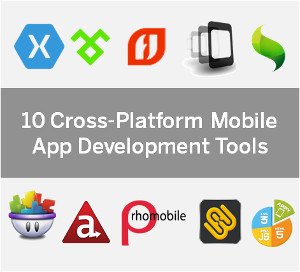Why Developers Should Go For Xamarin App Development?
Nowadays, mobile ecosystem is working on three main platforms. They are iOs, Android, and Windows. Whether it is an established company or an entrepreneur, they have to develop the application for all these platforms. For the new users, apps must be in stores and ready for the downloads.
Cost Effective :-Xamarin allows the developers to maintain the single codebase for iOS, Android, and Windows applications. This enables the developers to create applications in the shortest time. UI is the only code which is platform specific. Xamarin has proven to be one of the best cost-effective ways.
Different IDEs :-While developing apps with Xamarin, developers get two different IDEs (Integrated Development Environment) that is Xamarin Studio or Visual Studio. They are able to choose any platform that suits their requirements. Both the IDEs will help the developers to create the backend with C# language.
Reusability Of Code :-Xamarin App Development enables the developers to reuse the code. It helps them to reduce the time of coding. Developers are able to use the similar C# code base for multiple platforms. The UI layer remains native in particular mobile OS environment, even after the reusability of C# code. With the help of Xamarin Forms, developers are able to achieve almost 96% reusability of the code.
Sharing Of App Logic :-While building apps on Xamarin, developers need to code the application logic just once in C#. it includes input validation, database interaction, backend enterprise integration and web service calls. This logic of application can easily be shared across several platforms. It saves time and cost.
Portable Class Libraries :-PCL make it convenient for the developers to share the code across multiple platforms. Thy only need to write the libraries and code once. And get shared across Xamarin Android, Windows and Xamarin.iOS. With the help of Visual Studio or Xamarin Studio, PCL can be created for each platform.
Native Look And Feel :-Xamarin let the apps run natively on all devices irrespective of their platforms. The source code of the application is compiled to the native controls. Apps that have been built on Xamarin utilize acceleration and platform-specific hardware. They are compiled for the native performance. The applications built on other cross-platform technology interpret the code at runtime. Therefore, they are unable to run natively.
Native UI :- Xamarin as a development tool for cross-platform separates app logic from the interface. Codes of the applications are shared and the native user interface is built for the individual platform. For instance, an Android application developed on Xamarin performs, looks, and feels exactly as the Android application developed on Java.
Xamarin.Forms :- With the help of Xamarin.Forms developers can build user interface code. This code can be shared across Android, iOS and Windows platforms. Xamarin.Form is a library which contains almost 40 common navigation abstraction and UI controls. It will create the UI of multiple apps. Developers can choose elements from native UI and XF. Xamarin.Forms can be used on Android 4.0+, Windows Phone 8 and iOS 6.1+ platforms. Older versions are not compatible.
Conclusion
Xamarin has proven to be one of the most popular softwares for cross-platform app development. It enables the developers to build apps for iOS, Windows, and Android with the help of same C# codebase.
Xamarin App Development has provided the new way to create cross-platform apps. Plus, it has its own ecosystem. Developers are preferring Xamarin for their app development. The Xamarin apps are purely native and reach the marketplace sooner.


 Ritesh
Ritesh







